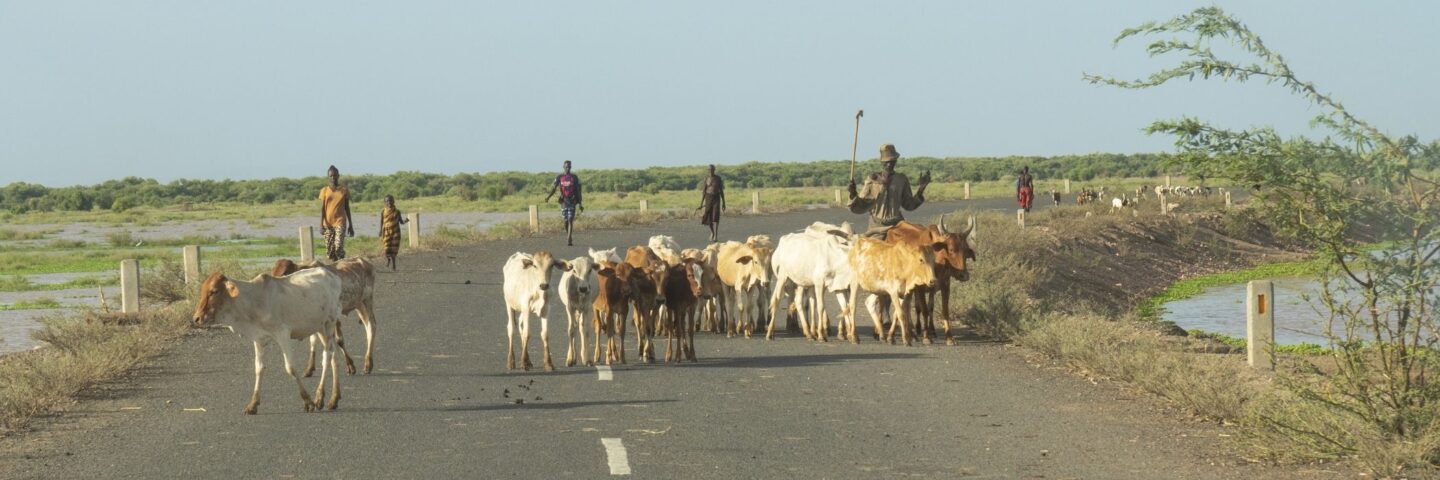
Climate Change Resilience
As the climate changes, we are powering vulnerable, low-income communities to adapt and thrive
Higher temperatures, extreme weather events—such as floods and droughts—and erratic rainfall patterns profoundly impact smallholder farmers, who are vulnerable to even the slightest shift in climatic conditions. Their livelihoods and well-being depend on their ability to grow food, source water, and keep a roof over their heads.
Powering low-income people to become resilient to climate change is one of the main cross-sectional strategies at the heart of iDE’s work. As we leverage market ecosystems to boost agricultural productivity and provide services to rural communities, we also deploy tactics to help people adapt to changing climates, promoting climate-resilient technologies, encouraging regenerative agriculture, and supporting community-led management of natural resources.


Lemecha Bobe, Ethiopia
iDE’s operations are now carbon neutral
While we work on local adaptation to climate change, as an organization, we also want to be part of the global solution, and are proud to have reached carbon neutrality. We purchased offsets, known as carbon credits, to cover our emissions, which come from the use of electricity, and emissions made by iDE directly, from operating heaters, air conditioners, and vehicles, for example. We have also pledged to go even further, cutting emissions to reach “net zero” – not only offsetting but producing as few emissions as possible – by the end of 2030. To reach net zero, iDE will also purchase “carbon removal credits” to offset any emissions we continue creating. These credits remove carbon from the atmosphere and are different from “carbon avoided credits” which reduce or avoid emissions.

Latrines for flood-prone households

Protecting the most vulnerable from climate shocks
Climate change affects everyone, particularly the most vulnerable and especially women. We are applying a climate change vulnerability and resilience lens across our portfolio to ensure we are powering those who need our support the most, but are the least responsible for the problem. For example, we are expanding our programs to promote clean cookstoves, sell water filters, install drip irrigation, and promote drought-resistant crops, linking farmers to information sources about the weather, and training people about community-led management of natural resources and livelihood techniques that can provide a green source of income for our clients. We are further using a landscape and regional approach, recognising that geographic units such as watersheds help to understand what impacts may be felt downstream and to design interventions accordingly.

Circular economy projects clean up the environment
In recent years, iDE has tested “circular economy” interventions that support production and consumption in a way that reduces waste and resource use, and keeps products and materials within value chains for as long as possible. In Vietnam and Cambodia, iDE and its partners have worked with informal waste pickers to monetize the collection of plastic, working to build circular value chains with the aim of boosting incomes for participants and reducing the amount of plastic littering local waterways. At the same time, a trial project launched by iDE Ghana, turned human waste into fertilizer and cooking fuel. Fecal sludge ordinarily goes into landfills, where it can seep into groundwater, but using a circular economy approach, we turned sludge into “energy briquettes” and compost.

Climate Resilience Publications
Check out these publications about our work on climate change resilience
Read More
